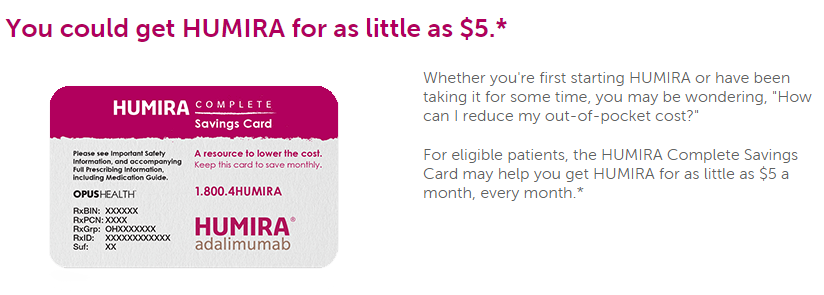Something Smells Fishy − Prescription Drug Coupons
 Getting Humira (adalimumab) for $5 a month seems like a deal made in heaven. But while being able to pay so little for a costly brand name drug may be good for one’s pocketbook, patient prescription coupons might not be a great idea for the collective good.
Getting Humira (adalimumab) for $5 a month seems like a deal made in heaven. But while being able to pay so little for a costly brand name drug may be good for one’s pocketbook, patient prescription coupons might not be a great idea for the collective good.
Manufacturers offer coupons to reduce or eliminate patient out-of-pocket payments for brand name medications for those covered by private insurance, but due to anti-kickback laws, the government doesn’t allow the use of drug coupons with Medicare Part D.
Today, Medicare’s share of annual retail prescription drug spending is about 30%. Is it possible manufacturer’s coupons are adding to the annual $129 billion in Medicare Part D spending on medication?
The details of coupon offers vary, but in general, this is how it works. The patient goes to the manufacturer’s website, downloads a coupon for an expensive medication, and takes the coupon to the pharmacy along with a prescription from their doctor. The insurance company is billed full price for the drug, but the consumer gets a significant price break on their copay.
While the wholesale price of the drug remains high, the immediate cost to the individual purchaser is now low or completely eliminated. Although the coupons cannot be used together with Medicare Part D, there is an easy workaround. Paying for the entire Medicare prescription out-of-pocket with a coupon is often cheaper than using Medicare Part D.
The programs appeal to physicians because they help patients afford their medications. But there may be another issue at play. Call me skeptical, but doesn’t couponing artificially inflate the price of drugs for everyone else?
Copayments are intended to nudge people toward using cheaper, therapeutically equivalent medications. Coupons encourage people to request the more expensive brand name medication by eliminating out-of-pocket costs. At the macro level, coupons contribute to higher government costs for drugs. How? Because coupons mitigate our frustration and anger about high drug prices by protecting us from the consequences of these high costs. People complain about the high cost of drugs, but if the majority of consumers could not pay for their everyday medications, there might be more pressure on Congress to do something.
Are coupon deals on prescription medications a house of cards that keeps drug costs artificially inflated? Something, perhaps, worth considering.

